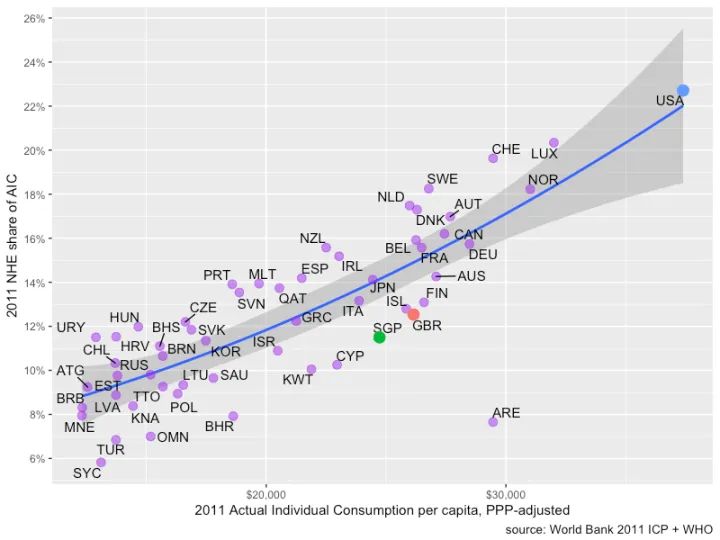I find this phenomenon to be kind of puzzling.
USA is one of the countries with one of the highest purchasing powers in the world, yet when it comes to healthcare an standard US citizen is likely to not be able to afford it if what needs to be dealt with is something not too simple.
For example this graph, based on OECD data, clearly shows that the USA is an outlier when it comes to healthcare spending: It spends almost twice as much per capita as other comparably affluent countries.
I can understand that as an essential service prices may skyrocket if the market is left without regulation but... essential goods like housing and food are by no means comparable with healthcare costs in general (for this question I'm setting as time frame last 10 years).
What are the reasons healthcare costs are so skyrocketed in the USA?
